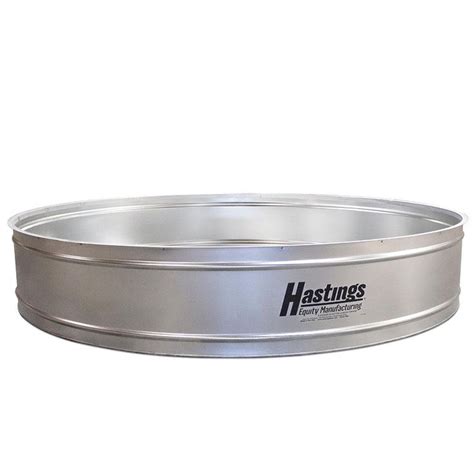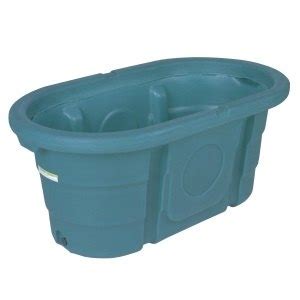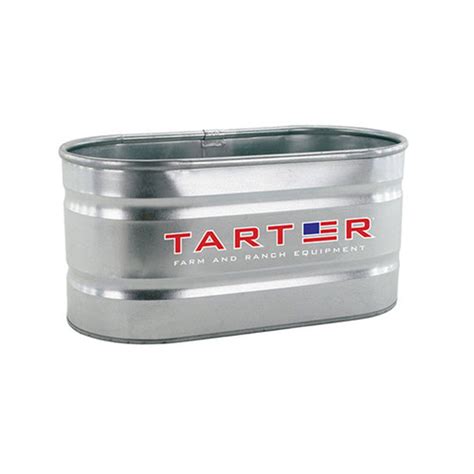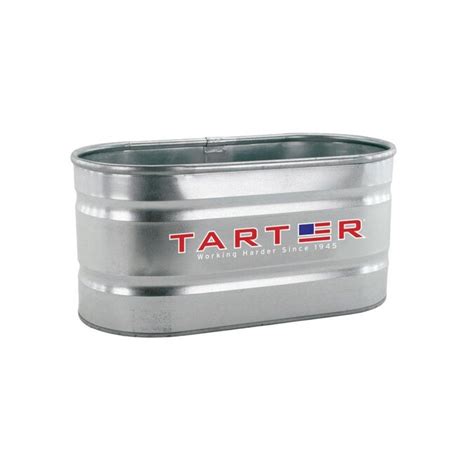A 100 gallon stock tank is a versatile and essential piece of equipment for any farm, ranch, or rural property. These tanks are designed to provide a reliable source of water for livestock, such as cattle, horses, and sheep, as well as for other animals like chickens and pigs. With a capacity of 100 gallons, these tanks are ideal for small to medium-sized operations, offering a sufficient supply of water for daily drinking needs. In this article, we will delve into the world of 100 gallon stock tanks, exploring their features, benefits, and applications, as well as providing expert insights and practical advice for selecting and maintaining these vital containers.
Key Points
- A 100 gallon stock tank provides a reliable source of water for livestock and other animals
- These tanks are ideal for small to medium-sized farms, ranches, and rural properties
- Durable construction and weather-resistant materials ensure long-lasting performance
- Regular maintenance and cleaning are crucial to prevent bacterial growth and ensure water quality
- 100 gallon stock tanks can be used for a variety of applications, including watering livestock, irrigation, and fire protection
Features and Benefits of 100 Gallon Stock Tanks

100 gallon stock tanks are designed with durability and functionality in mind. Typically constructed from heavy-duty plastic or metal materials, these tanks are built to withstand the elements and resist corrosion. The 100 gallon capacity provides an ample supply of water for daily drinking needs, and the compact size makes them easy to transport and position in various locations around the farm or ranch. Additionally, many 100 gallon stock tanks feature a sturdy handle or lip, allowing for easy lifting and pouring, and some models may include a built-in spigot or valve for convenient water access.
Materials and Construction
The materials used in the construction of 100 gallon stock tanks play a crucial role in their performance and longevity. Plastic tanks, for example, are often made from UV-stabilized polyethylene, which provides excellent resistance to sunlight, extreme temperatures, and chemical corrosion. Metal tanks, on the other hand, may be constructed from galvanized steel or aluminum, offering superior strength and durability. When selecting a 100 gallon stock tank, it is essential to consider the specific needs and conditions of your operation, including climate, terrain, and intended use.
| Material | Benefits | Drawbacks |
|---|---|---|
| Plastic | Lightweight, corrosion-resistant, easy to clean | May be prone to cracking or punctures |
| Metal | Strong, durable, resistant to extreme temperatures | May be heavy, prone to rust or corrosion |

Applications and Uses of 100 Gallon Stock Tanks

100 gallon stock tanks are incredibly versatile, offering a range of applications and uses beyond simply providing water for livestock. These tanks can be used for irrigation, fire protection, and even as a makeshift pool or water feature. In addition, 100 gallon stock tanks can be used to store and transport other liquids, such as fertilizers, pesticides, or fuel. With their compact size and durable construction, these tanks are an excellent choice for small to medium-sized farms, ranches, and rural properties.
Irrigation and Watering Systems
100 gallon stock tanks can be easily integrated into irrigation and watering systems, providing a reliable source of water for crops, gardens, and landscapes. By using a 100 gallon stock tank as a reservoir, you can create a gravity-fed system that delivers water to your plants and trees, reducing the need for manual watering and minimizing waste. Additionally, these tanks can be used to store and mix fertilizers, pesticides, or other chemicals, making them an excellent choice for agricultural and horticultural applications.
What is the best material for a 100 gallon stock tank?
+The best material for a 100 gallon stock tank depends on your specific needs and conditions. Plastic tanks are lightweight, corrosion-resistant, and easy to clean, while metal tanks are strong, durable, and resistant to extreme temperatures.
How often should I clean and maintain my 100 gallon stock tank?
+Regular cleaning and maintenance are crucial to prevent bacterial growth and ensure water quality. It is recommended to clean and disinfect your 100 gallon stock tank at least once a month, and to inspect the tank regularly for signs of damage or wear.
Can I use a 100 gallon stock tank for purposes other than watering livestock?
+Yes, 100 gallon stock tanks are incredibly versatile and can be used for a variety of applications, including irrigation, fire protection, and even as a makeshift pool or water feature. With their compact size and durable construction, these tanks are an excellent choice for small to medium-sized farms, ranches, and rural properties.
In conclusion, 100 gallon stock tanks are a vital piece of equipment for any farm, ranch, or rural property. With their durable construction, compact size, and versatile applications, these tanks provide a reliable source of water for livestock and other animals, while also offering a range of uses beyond simply watering. By considering the specific needs and conditions of your operation, and by selecting a high-quality 100 gallon stock tank, you can ensure a healthy and thriving environment for your animals, crops, and landscape.
